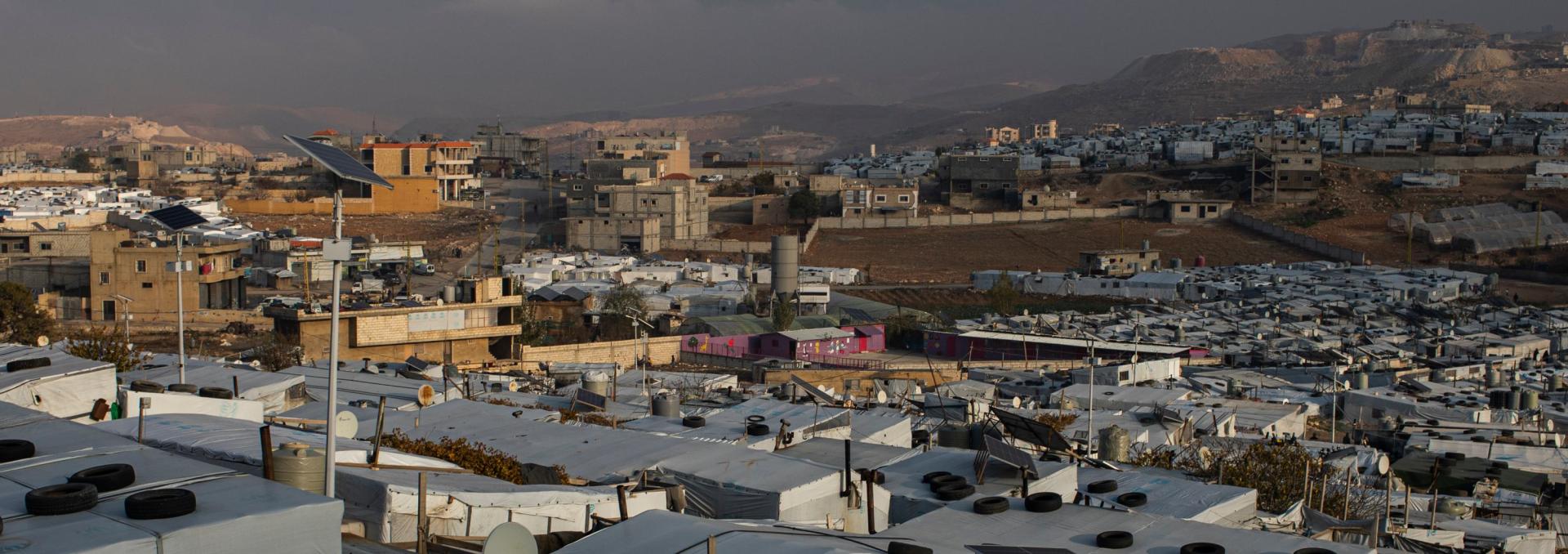

Leave no one behind: NGOs call on the international community to address increasing needs in Lebanon
As the Syrian crisis enters its 13th year and the 7th Brussels Conference in support of Syria and the region approaches, Lebanon Humanitarian and Development NGOs Forum (LHDF), Working Group for People Affected by the Syrian Crisis (PASC), and Lebanon Humanitarian INGO Forum (LHIF) members call for sustained support from the European Union, Member States, and other donors to those in need in Lebanon. Lebanon continues to host approximately 1.5 million[1] refugees from Syria. At the same time, Lebanon is experiencing a rapidly deteriorating and multi-layered financial, economic, political, and social crisis which is leading to acute and increasingly visible humanitarian needs among all population groups. Today, with 3.9 million people out of the 5.7 million population in Lebanon needing humanitarian assistance[2], these compounded crises are affecting refugee, Lebanese, and migrant communities alike.
There continues to be concerted efforts to support Syrian refugees in Lebanon, including the support of the international community under the Lebanon Crisis Response Plan and efforts from the Government of Lebanon on legal and administrative practices. However, in recent months, anti-refugee rhetoric has been increasing as a large part of the society struggles to adjust to the deepening crisis. As a result, the recent reports about raids, arrests, detention, and deportation of Syrian refugees are very concerning.
While fully recognizing and aiming to address the challenges faced by Lebanon and the Lebanese people, we reiterate that all refugees have the fundamental human right to return in safety and dignity to their country of origin at a time of their own choosing. Refugee return should be based on a voluntary, free and informed decision. We therefore call on the Government of Lebanon to uphold its commitment to the principles of international law and ensure that refugees are protected from refoulement, are able to live in safety and dignity, and have access to their rights. We also reiterate the shared responsibility of the international community and Member States to scale up their commitments to resettlement and other legal and safe pathways for refugees.
The capacity of Lebanon to cope with overlapping shocks is expected to further decrease in the absence of structural reforms and support for development plans. We urge the Government of Lebanon to act urgently and pursue reforms to address the drivers of the economic crisis and ensure effective governance. At the same time, the need for reform should not be a reason for donors to step away from supporting people in need and responders to provide assistance to address the ever-growing humanitarian needs. Alongside sufficient levels of multi-year funding, greater donor flexibility is required to enable better responsiveness and effectiveness of aid programmes in a very fluid operational environment.
As NGOs active in the humanitarian response, we also encourage all responders to rethink how to address humanitarian needs in a country that is collapsing and to ensure that no one is left behind. This year, there is a unique opportunity with the ongoing revision of the response frameworks to bring donor, response and Government stakeholders together to streamline aid coordination to increase efficiency and ensure principled humanitarian assistance that puts people at the center, and is based on needs and vulnerabilities. We must also collectively ensure that local and national NGO actors are meaningfully represented across coordination bodies and that their leadership is ensured in the identification of needs and design of programmes and interventions, along with affected communities.
Finally, as the humanitarian crisis in Syria remains very large in scale and complexity, but also as Lebanon is experiencing multiple crises, LHDF, PASC, and LHIF members remain committed to respond to the needs of all vulnerable populations in Lebanon, regardless of nationality or status.
The Lebanon Humanitarian and Development NGOs Forum (LHDF), created in 2014, is an independent entity, composed of 86 local and national humanitarian and development NGOs operating in Lebanon across a wide range of sectors, facilitating coordination between them and with other relevant stakeholders to have an efficient response to both humanitarian and development needs in the country.
The Lebanon Humanitarian INGO Forum (LHIF) is an informal and independent coordinating body comprised of 65 international NGOs (INGOs) who are working to address the needs of vulnerable individuals, families and communities throughout Lebanon.
The Working Group for People Affected by the Syrian Crisis (PASC) is a voluntary, inter-organizational,
non-binding and informal network. PASC works to enhance the capacity and space for civil society organizations in Lebanon to influence their government and international actors to adopt policies that more effectively meet the needs of vulnerable refugees and Lebanese communities, and implement them effectively.

Action Against Hunger is a member of LHIF and supports the above declaration.
[1] As per Lebanon Crisis Response Plan 2023, available at: https://data.unhcr.org/en/documents/details/100389
[2] As per Escalating needs in Lebanon | A 2023 overview:
https://reliefweb.int/report/lebanon/escalating-needs-lebanon-2023-over…;
